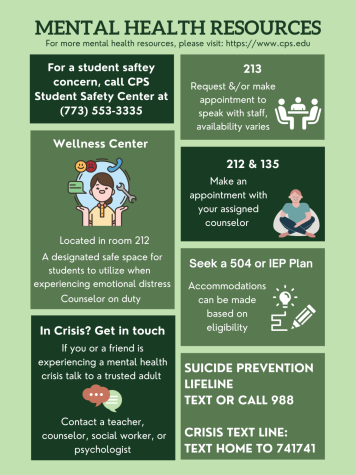Muslims begin observing month of Ramadan
March 31, 2023
30 days and 30 nights. Observed by over a billion Muslims worldwide and a time of self-care, community, and culture. Ramadan has come once again.
The ninth month of the Islamic lunar calendar starts off with the sighting of a crescent moon. In the lunar system, each month is 29 or 30 days, but in the solar system, each month is 31 days. As a result, a lunar year is 10 or 11 days shorter than a solar year, resulting in Ramadan “shifting” to begin a few days earlier each year.
Fasting, according to the Oxford Dictionary, means to abstain from all (or some) kinds of food or drink. It is also a foundational pillar (along with faith, prayer, charity, and pilgrimage) of practicing the religion in the month of Ramadan. This year, Ramadan began March 23 and will end around April 20.
Muslims observe Ramadan by fasting, practicing self-restraint, being kind, patient, forgiving and refraining from sins and sexual intimacy. In addition, Muslims also recite and study the entire Qur’an (Islamic holy book) individually (perhaps more than once), give charity, and perform acts of service, according to Yaqeen Institute. Thus, believers will attend nightly congregations or read a bit throughout each day all to emulate Prophet Muhammad, who would rehearse the revealed Qur’an to the archangel Gabriel in this lunar month.
“The things that I don’t focus on throughout the rest of year because I’m distracted to do it, I think about them before Ramadan, like making up any missed prayer, read more Quran and understanding its meaning,” Saleha Aya, an Islamic Academy Tutor and an NEIU student, said. “I also made a goal to try to memorize surahs [sections in the holy book] that I haven’t reviewed in a long time that I may have forgotten. Other goals are to try to stay away from sin, be more soft hearted, respectful and kind towards people.”
According to the Yaqeen Institute, all believers who are healthy, able-bodied and of-age are required to fast, but there are exceptions such as children not of-age, travelers, the sick who are unable to fast and pregnant or menstruating women; they can make up fasts at a later time but are exempt from the five daily prayers.
To provide enough sustenance for the body, Muslims begin with Sehir, also known as suhoor. It is a period of the night in which Muslims have a short meal and set an intention for the fast, according to an article by Usman Ahmed, from The Chicago Maroon. At sunset, the fast is completed with an iftar meal.
Daily, Muslims maintain five prayers (Fajr, Zuhr, Asr, Maghrib, Isha) but during Ramadan, many strive to increase their worship by performing additional prayers such as Taraweeh and Tahajjud. Special to Ramadan, Taraweeh is a highly suggested night prayer performed in sets of two rakats, each in the same way Muslims pray their standard prayers, according to Yaqeen Institute. Typically, mosques hold Taraweeh prayers providing the community to listen to the recitation of the Quran behind the leader of the prayer.
“And [going to the mosque for iftar or taraweeh] is not just like a super religious thing but it’s also a place where people can have fun, and families and friends can get together,” Maimuna Mahmood, a Lane junior, said.
“When I recall last year’s Ramadan, I would wake up around like 10 or 11 a.m. to sleep in because of sehr. I would do school in the morning and after I finish homework, it would be Zuhr time and I would start praying Quran. Towards Asr (afternoon prayer) time I would take some rest, help my mom get ready for iftar, then do taraweeh,” Aya said. “But we pushed through — no matter how many hardships you face, you still enjoy Ramadan.”
Despite all the changes to one’s daily lifestyle, Muslims continue to cherish “the blessed month” because of the purpose and peace it brings to their otherwise busy and mundane lives.
“I would describe Ramadan as a month of spirituality, focusing on your true purpose in life through fasting and avoiding any kind of committing of sins and focusing on doing acts of worship that can please God,” Aya said. “For me, there are two purposes in life: Focus on worldly and spiritual responsibilities throughout the year and find balance between both. But during the month of Ramadan, I focus more on spiritual worship and doing things that can please God,” she continued.
Along with encouraging Muslims to be more pious, Ramadan brings with it, a sense of harmony, love and family within the Muslim community.
“Because everyone is less distracted and in a way, “let go” of the world and know what their focus is during Ramadan, it brings that life in Ramadan,” Aya said. “Everyone becomes more softer, more unified, happier and more content during Ramadan because they let go of their worldly affairs. There is peace and tranquility in that month because you’re doing what you’re supposed to be doing and people around you change for the better.”
In the Quran, God states that Ramadan was the month in which the Quran was revealed as guidance for humanity and Muslims should fast in it. Therefore, Muslims celebrate Ramadan as gratitude to God for his final revelation and by fasting during the day, believers work with greater determination to rejuvenate their spirituality, religious conscience, and devotion to God, according to Yaqeen Institute. That is the main objective: “restoring the centrality of God in our lives.”
Furthermore, charity is of great importance in Ramadan. Muslims particularly focus on increasing their generosity by making many donations to the poor. According to Yaqeen Institute, this spirit stems from the sympathy felt for those who have less when experiencing hunger personally while also understanding the generosity of God on his creation.
“Fasting is something that God told us to do but another reason [to fast] is for people to feel the hunger of people that don’t have food. And it’s just really to test our patience and what we can do and what we can’t do,” Mahmood said. “It’s like a humbling experience for everyone.”
In the final ten days of the month, a night called Laylatul Qadr (The Night of Power) occurs in which the critical matters for each person is decided for the coming year. Therefore, worship and righteous deeds performed are far more powerful on this night than any other night. But according to Ibn Qudamah Al Maqdisi referenced by Yaqeen Institute, God has hidden the exact date so believers perform worship throughout the month in hopes of catching it.
“We are told by our Prophet Muhammad that there is one night of the 10 days in which you can make any dua (wish) that can be accepted so people worship more on those nights especially the odd ones [night]: 21st, 23rd, 25th, and the 27th,” Aya said. “Many scholars emphasize the 27th night so everyone does the most ibaadah (worship) they can within those last 10 days.“
The day after Ramadan is Eid al-Fitr. According to Yaqeen Institute, on this celebration, festivities begin with Fajr (morning prayer) and Eid prayer. Celebrators adorn themselves in their loveliest clothing, embrace friends and family, and wish each other “EId Mubarak” (Blessed Eid). Specific ways to celebrate vary but there will surely be feasting on delectable foods of all cultures, gift exchanging, and quality time spent with loved ones.
“Eid al fitr is a day of happiness,” Aya said. “[But] you have to continue to worship on that day and try to continue the lifestyle you achieved in Ramadan all year round.”






